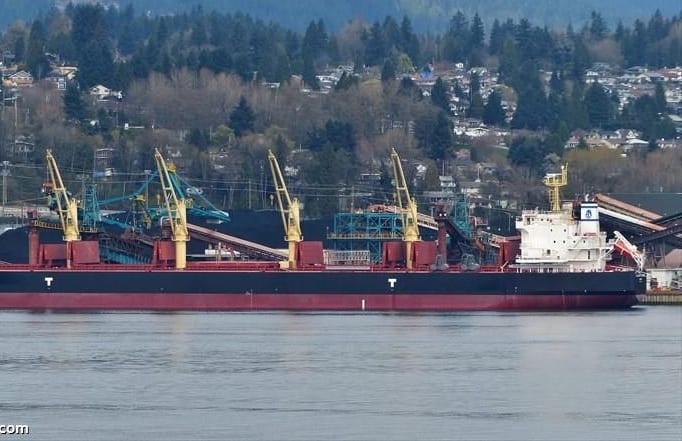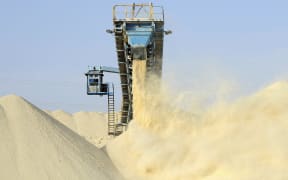Fertiliser company Ballance Agri-Nutrients could end up buying back a consignment of phosphate from political activists who are on the brink of gaining control of it.

The NM Cherry Blossom was carrying 50,000 tonnes of phosphate rock when it was stopped at Port Elizabeth. Photo: Supplied / M.L. Jacobs MarineTraffic.com
A ship was carrying 55,000 tonnes of phosphate rock to New Zealand when it was stopped at the South African town of Port Elizabeth.
Opponents of the shipment said it had been mined illegally in Western Sahara, a former Spanish colony that was occupied by Morocco in the 1970s.
Independence activists say Morocco's control is illegal and they cite a European Court ruling that Western Saharan products should not be regarded as Moroccan goods in trade deals.
The Moroccan company that sold the fertiliser has pulled out of a subsequent court hearing, angrily accusing the South African government of piracy.
Ballance Agi Nutrients chief executive Mark Wynne said that meant the fertiliser reverted to the only remaining party to the case, the Western Sahara activists, the Polisario Front, pending settlement of remaining legal details.
"It is really up to Polisario what they do with the cargo," Mark Wynne said.
"Our understanding is that it is on the market, and it may well end up as our cargo ultimately, but it is certainly in a tender situation at the moment."
Meanwhile, Ballance Agri Nutrients' annual report makes clear that the dispute has not cost it anything.
That is despite the stalled ship incurring berthage fees in Port Elizabeth at the rate of $10,000 a day, which are likely to total more than $1m before it is released.
Mr Wynne said most of that cost would be met by insurance and the rest would be payable by the Moroccan company exporting the goods.
Subsequent shipments of phosphate to New Zealand have been routed via Cape Horn to avoid South African jurisdiction.




